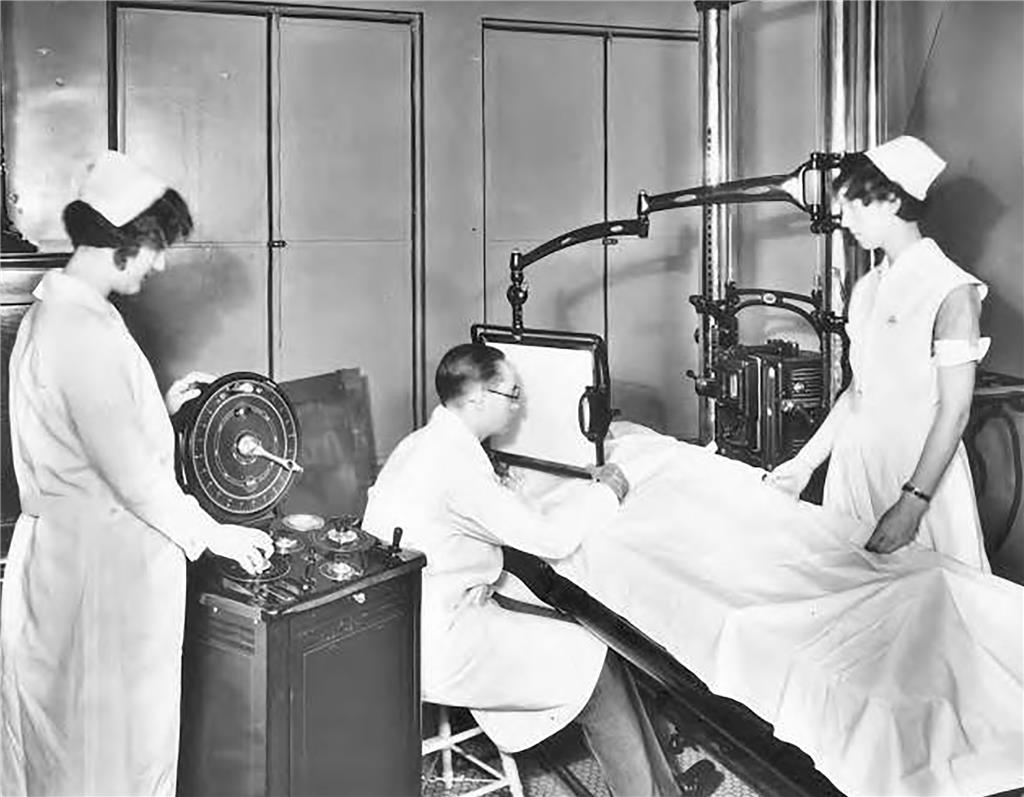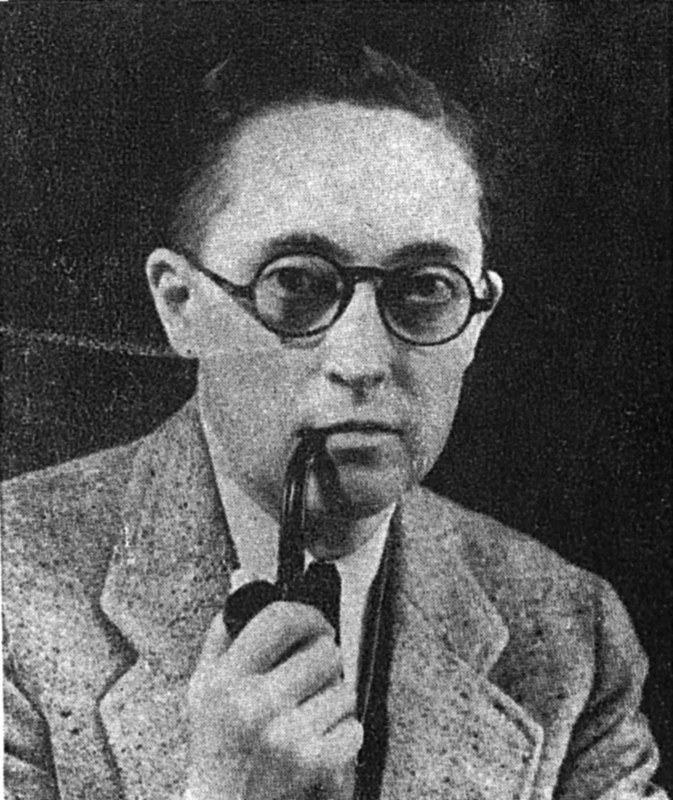"Each of us must take into account the raw material which heredity dealt us at birth and the opportunities we have had along the way, and then work out for ourselves a sensible evaluation of our personalities and accomplishments."
Alan L. Hart (1890 – 1962) was a US American 20th-century physician, radiologist, disease researcher, and novelist who pioneered the use of x-ray in detection for tuberculosis. He spent the latter part of his career in public health, undoubtedly saving many thousands of lives across the country expanding tb services and education throughout rural areas. In 1917 Hart was one of the first people to undergo a gender affirming hysterectomy in the United States, and is the first documented case of a female to male transition in medical literature in the English speaking world.
“I had to do it. For years I had been unhappy. With all the inclinations and desires of the boy I had to restrain myself to the more conventional ways of the other sex. I have been happier since I made this change than I ever have in my life, and I will continue this way as long as I live’
interview with Hart about his hysterectomy
Hart begin expressing himself as a boy starting at least age 4, and was largely accepted by his family as male, with his grandfathers obituary in 1921 listing Hart as his grandson. A family friend of his stated in a 1921 interview “Young Hart was different, even then. Boys' clothes just felt natural. Hart always regarded himself as a boy and begged his family to cut his hair and let him wear trousers. Hart disliked dolls but enjoyed playing doctor. He hated traditional girl tasks, preferring farm work with the menfolk instead. The self reliance that became a lifelong trait was evident early: once when he accidentally chopped off his fingertip with an axe, Hart dressed it himself, saying nothing about it to the family.” During childhood school, Hart wrote most of his assignments under his first chosen name of Robert Allen Bamford Jr.
Hart received a total of 4 degrees in his life. He received a pre med degree in 1912 from Portland, Oregon’s Lewis & Clark College, then known as Albany College, followed by a medicine degree doctorate from the University of Oregon Medical Department in Portland (now Oregon Health & Science University) in 1917. His doctorate was originally issued under "Hart, [deadname] aka Robert L., M.D.”. which prompted a legal name change in 1918. He took his first medical job at a Red Cross hospital at this point. In 1928, Hart received a master’s degree in radiology from the University of Pennsylvania and was named director of radiology at Tacoma General Hospital. After working for several years as a tuberculosis consultant in Washington and Idaho, Alan Hart moved with his wife to Hartford, Connecticut, where he received a master’s degree in public health from Yale University in 1948. Around this time, Hart began taking testosterone and is described as having a deeper voice and being able to grow facial hair as a result.
TUBERCULOSIS

Hart devoted much of his career to research and treatment of tuberculosis. By the dawn of the 19th century, tuberculosis—or consumption—had killed one in seven of all people that had ever lived. Throughout much of the 1800s, consumptive patients sought "the cure" in sanatoriums, where it was believed that rest and a healthful climate could change the course of the disease. In 1882, Robert Koch's discovery of the tubercule baccilum revealed that TB was not genetic, but rather highly contagious; it was also somewhat preventable through good hygiene. After some hesitation, the medical community embraced Koch's findings, and the U.S. launched massive public health campaigns to educate the public on tuberculosis prevention and treatment. TB usually attacked victims' lungs first; Hart was among the first physicians to document how it then spread, via the circulatory system, causing lesions on the kidneys, spine, and brain, eventually resulting in death. With no cure for the disease in its advanced stages the only hope for sufferers was early detection.
X-rays, or Roentgen rays as they were more commonly known until World War Two, had been discovered only in 1895, when Hart was five years old. In the early twentieth century they were used to detect bone fractures and tumors, but Hart became interested in their potential for detecting tuberculosis. Since the disease often presented no symptoms in its early stages, X-ray screening was invaluable for early detection. Even rudimentary early X-ray machines could detect the disease before it became critical. This allowed early treatment, often saving the patient's life. It also meant sufferers could be identified and isolated from the population, greatly lessening the spread of the disease. By the time antibiotics were introduced in the 1940s, doctors using the techniques Hart developed had managed to cut the tuberculosis death toll down to one fiftieth of what it had previously been.
In 1937, Hart was hired by the Idaho Tuberculosis Association and later became the state's Tuberculosis Control Officer. He established Idaho's first fixed-location and mobile TB screening clinics and spearheaded the state's war against tuberculosis. Between 1933 and 1945 Hart traveled extensively through rural Idaho, covering thousands of miles while lecturing, conducting mass TB screenings, training new staff, and treating the effects of the epidemic. An experienced and accessible writer, Hart wrote widely for medical journals and popular publications, describing TB for technical and general audiences and giving advice on its prevention, detection, and cure. At the time the word "tuberculosis" carried a social stigma akin to venereal disease, so Hart insisted his clinics be referred to as "chest clinics", himself as a "chest doctor", and his patients as "chest patients". Discretion and compassion were important tools in treating the stigmatised disease.
In 1943, Hart, now recognized as pre-eminent in the field of tubercular roentgenology, compiled his extensive evidence on TB and other X-ray-detectable cases into a definitive compendium, These Mysterious Rays: A Nontechnical Discussion of the Uses of X-rays and Radium, Chiefly in Medicine, still a standard text today. The book was translated into Spanish and several other languages
PBS - TB in America: 1895-1954
Join our public Matrix server! https://matrix.to/#/#tracha:chapo.chat
As a reminder, be sure to properly give content warnings and put sensitive subjects behind proper spoiler tags. It's for the mental health of not just your comrades, but yourself as well. Here is a screenshot of where to find the spoiler button.



So I tried dating t4t poly dating for the first time, and it's been like kind of a mess.
Basically when I told my friend about the person I was dating, he warned me saying that his ex had had a bad experience with her. I asked her about this, and she told me a different version of the sorry, and that the friend's ex had been spreading rumors about my date for years to cover up her own abuse.
So both the person I was dating and the accuser are poly. I was contacted by other partners of both of these people to support their partner and tell me bad things abpit the other person. There is apparently a lot of history here. I have no way of knowing who did the wrong thing here or what really happened. But I do know what I feel like I am involved in some sort of feud between two polycules, lasting several years at least, which is ridiculous and I hate it.
Even without the feud, I found it very off-putting that as soon as there was a problem between the person I was dating and myself her other partners immediately stepped in. One of them wanted to set up a meeting so that we could discuss the things I had been told and they could "take action". I had never met this other person before. She is cis, which is fine I guess but I am exclusively t4t and I really hate the idea of involving a random cis person in my relationship. Honestly it felt like I was getting emails from HR or something.
I'm not against being poly, or having an open relationship, or dating someone who is. But like it seems really weird and unfair that this person's other partners will immediately get involved when I haven't even met them before, and I don't have any other partners of my own at the moment.
I'm definitely done with this whole mess, and I hope to avoid these people in the future. But I imagine there are people here who have had good experiences with this type of thing. So like how is it supposed to work? Should I have met the other partners sooner? Should I not date someone when I'm not really interested in a relationship with their other parents? Idk
jesus that sounds stressful...
as far as i can tell, as someone who's certified Been Burned By Polyam But Trying Again Anyway (but not certified Good At It And I'm Really Just Making Shit Up), here's a few things that are entirely my opinion:
I went through some poly when I was in my 20s and idk most everyone was nice but dating IRL is like ... everyone knows each other kinda, idk I just wanted something deeper & more stable than I was getting and I wasn't able to feel secure in my relationships. Looking back though, I think that maybe the problem was in me more than them. Also they weren't trans so there was a barrier there too...
My completely uneducated opinion on How I'd Like It To Work is this (this is highly contentious, and I'm sure some people will disagree, idk I think there's multiple ways to do polyam):
I want to make deep relationships with people and not feel like I'm having to be exclusive to one of them, or constantly having to hide feelings from myself/other people. In an ideological sense, I don't want to "hold my partners back" from exploring other relationships. But, I still want deep commitment with the people I'm close to and to build lives and uniqueness with them since none of them are replaceable. This probably limits me to a small number of partners and like good I kinda want that. For me ... poly is way to ensure long term things last longer because there's no need to do serial monogamy. But I wouldn't be opposed to a building a polycule with the right people, if I'm being real...
I'm not completely "relationship anarchy" personally but I like a lot of the tenets of it, I believe in slowing down a bit for people's comfort but I don't believe in controlling other people's actions with rules. In the end, what does holding someone back from something they long to do accomplish? I just want to know where I can fit in, is all.
There's a bunch of red flags in there. Ongoing feud between two polycules, mutual abuse accusations, metamours you do not know yet immediately wanting to get involved to get you cued in on all the drama, it just sets off all my alarm bells. I can imagine the kind of stuff you'd find if you'd dig deeper, but eh, that'd be enough for me to get the hell out as well. I'd say you dodged a bullet there.
It's completely fine to not want to date somebody's other partners, in fact i know poly people who avoid crossdating entirely or keep it to a minimum specifically to avoid these kinds of situations to develop. Besides that, yeah, i can just recommend the usual stuff like communicating openly about your boundaries, your concerns and needs, to do that right from the start and to check in with your partners regularly. If you want to make poly relationships work, you need to be able to make your partners feel secure and respected, and that only works when you listen to them and act empathetically. And that doesn't only go for you, ofc, it goes for all of your partners. Most of the bad situations i've seen happening were in groups where people just sleep around randomly and never have any boundary talk, or partial breakups in polycules were everybody crossdated.
You can always do monogamous, but it's not really a solution to having outside people fuck around without relationship in weird ways (it could be the other persons close friends). Hinging sucks, I don't get the appeal personally lol. I'm fine with poly but I have very little interest in focusing on more than one person.
In this case, the poly person you were dating had their other relationships jump in way too quick. That's their whole toxic polycule deal, definitely not what it should be. Yeah, you should eventually meet and maybe even like the other people your partner dates (and visa versa) but it's not a requirement. Especially early, cause like who wants to meet your partners flings they might see a handful of times for coffee? That'd get exhausting. No matter what, you're going to get in some kind of entanglement with your metamours (your partners partners). Yeah, it can be a deal breaker if your partners partners suck. That's completely fair.